Jul 25th, 2024
|4 mins
In Mobile Application Development
Jul 25th, 2024
|4 mins
Share Article
With the rate of technological advancement in our time, most users of your application will be techies. As a result, your app users are less likely to revisit your application if they face a bug or encounter some issues while using it.
This means that if these problems remain unattended before your application goes live, you could end up losing a lot of customers. This is why you need to add mobile app testing to the checklist of activities before launching the application.
Mobile device testing also plays a massive role in ensuring you don’t get bad reviews on your application. There are currently tons of applications on different app stores, and users always make their choices based on which application has the most positive feedback. And, as you can imagine, users don’t hesitate to leave a bad review on your application if they encounter any difficulties while using your application.
Why Automate Tests for Mobile Testing?
Automated tests take away the burden of manually carrying out tests on our application across different devices. You have to define automation rules by creating an automation script, which will serve as a blueprint for the framework on which you’re carrying out your test.
During tedious manual testing, even the most meticulous tester will make errors.
Automated tests repeat the same processes every time they’re run, and they never neglect to keep track of the results.
Automated testing can replicate the interactions of tens, hundreds, or thousands of virtual users with a network, software, and web applications. This is why having an idea of some test automation tools out there would be relevant in your application’s production lifecycle.
Now, without further ado, let’s get into my recommended test automation tools for mobile device testing.
1. Perfecto
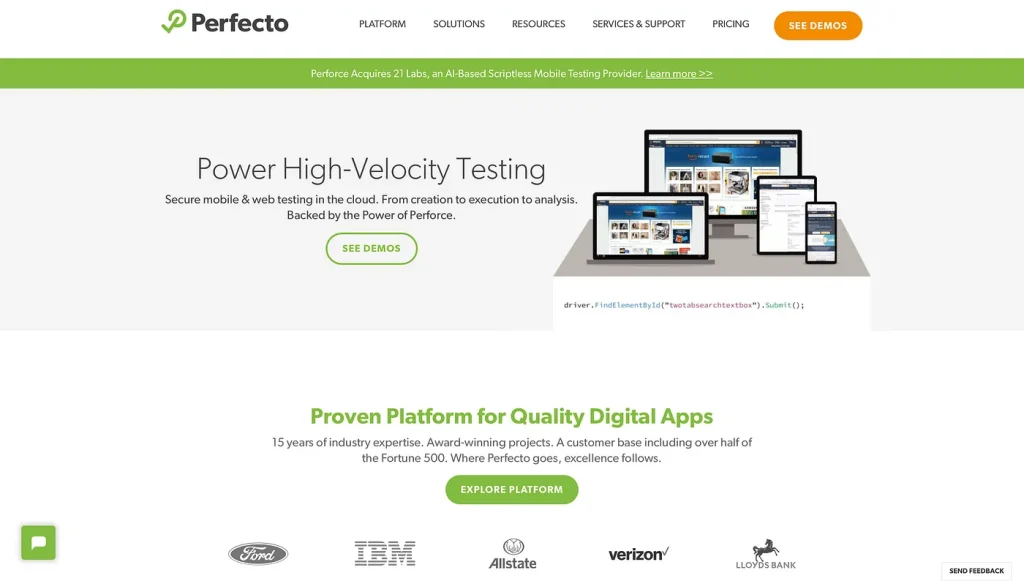
Perfecto is a secured mobile and web test automation solution powered. It provides access to an excellent testing cloud with a wide variety of mobile devices to test your application. It also connects with cloud devices to debug your code if the test fails.
You also have the liberty of using your preferred automation framework to run your tests on Perfecto’s cloud-based devices and virtual machines because the cloud is always on and readily available from any location on the planet. As the only end-to-end continuous testing solution, Perfecto has you covered for web and mobile app testing from test creation to execution and analysis.
2. Espresso
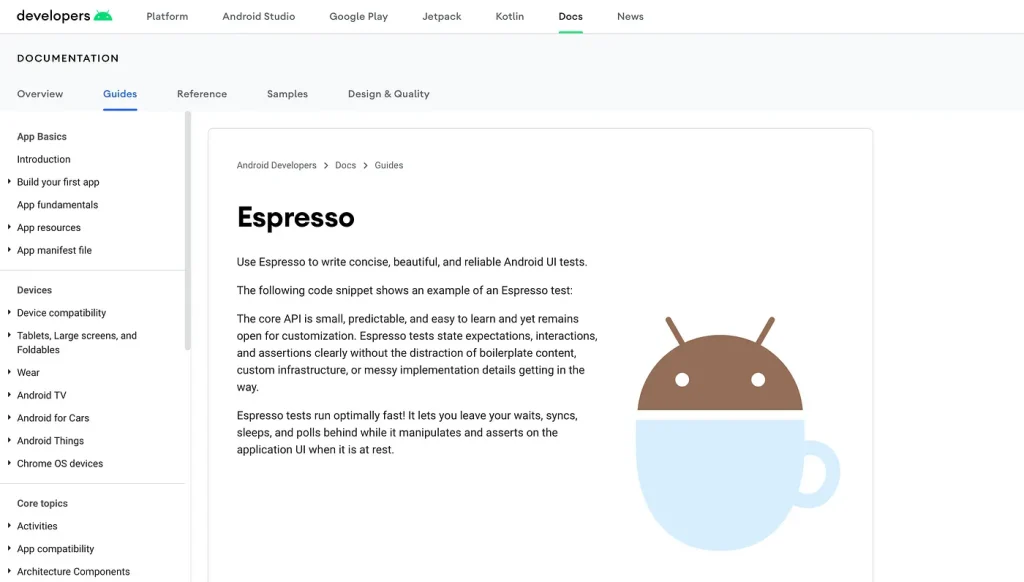
Espresso by Google is an open-source mobile test automation framework for native android applications. According to the official docs, the Espresso API is small, predictable, and has a smooth learning curve. As a result, Espresso tests are great for testing stated expectations and user interactions.
Espresso is typical among android developers. It is prevalent owing to its user-friendliness and the fact that it’s open-source. Its test automation is mainly for software developers who consider automated testing a core part of the mobile application development lifecycle.
3. Appium
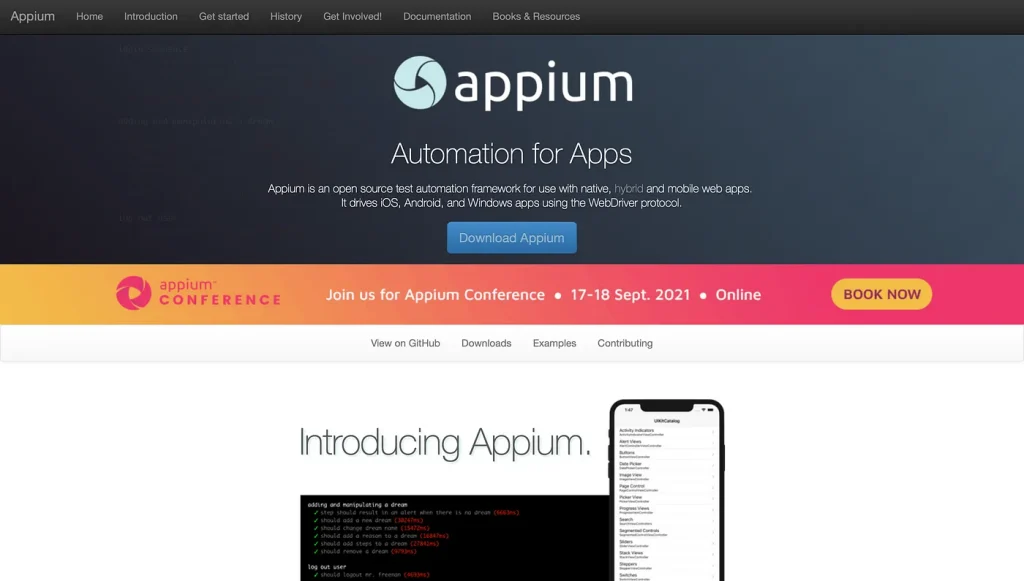
Appium is another excellent mobile test automation framework used for native android and iOS apps, as well as hybrid and web apps. It has an easy setup process and is designed to work with many programming languages such as Python, JavaScript, Java, Php, Pearl, etc.
Appium is built on the concept that testing your native application should not require incorporating an SDK or recompiling your application numerous times. Instead, you should have the liberty of using your desired framework for mobile testing.
Configuring an application to run on Selenium is similar to configuring an application to run on Appium. If you have any experience with Selenium, using Appium for mobile testing should be relatively easy and not demand much from you to get accustomed to a new interface.
4. Robotium
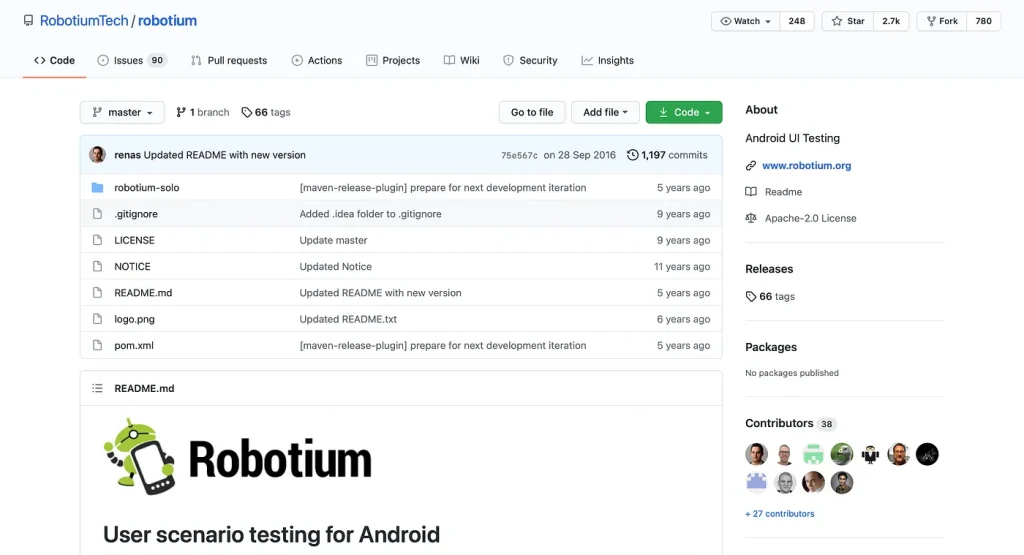
Robotium is another excellent open-source mobile test automation tool, usable on hybrid and native applications. With the use of Robotium, developers can create automated GUI testing cases for their Android applications. In addition to this, the developer could write a functional, system, and acceptance test scenario, spreading many Android activities.
It provides developers with a suite for writing great UI tests without needing the entire source code. With the help of their API, you can create automated UI scripts. It also provides ease of usage and integration with CI Maven, Gradle, and ANT.
5. Calabash
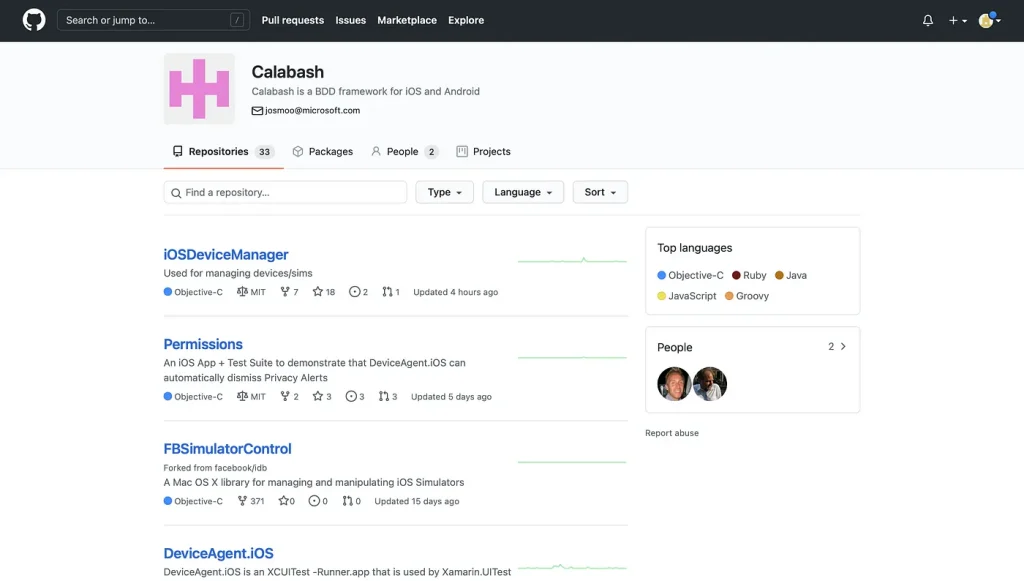
Calabash is a mobile test automation framework for native Android and iOS applications, as well as hybrid apps. It has an easy-to-use syntax that even non-techies can get a hold of in less than no time. This tool for Android and iOS apps allows you to develop and run automated acceptance tests without knowing how to code.
Calabash allows for automatic UI interactions such as pushing buttons, entering text, validating responses, and lots more within an application. It also supports various natural language commands, and new commands can be created and implemented using Java or Ruby.
Final Thoughts
Mobile testing is a process that should be accorded high significance in your application development lifecycle. The benefits are immense, and there are lots of tools out there specially designed to simplify the process.
The above-mentioned mobile test automation tools automate testing applications while providing lots of other benefits that you can’t get from manual testing. So feel free to explore the list of mobile test automation tools and pick the one that suits your specific needs and the nature of your application.
Ekemini Eshiet
Author
In Mobile Application Development
Jul 17th, 2024
|9 mins